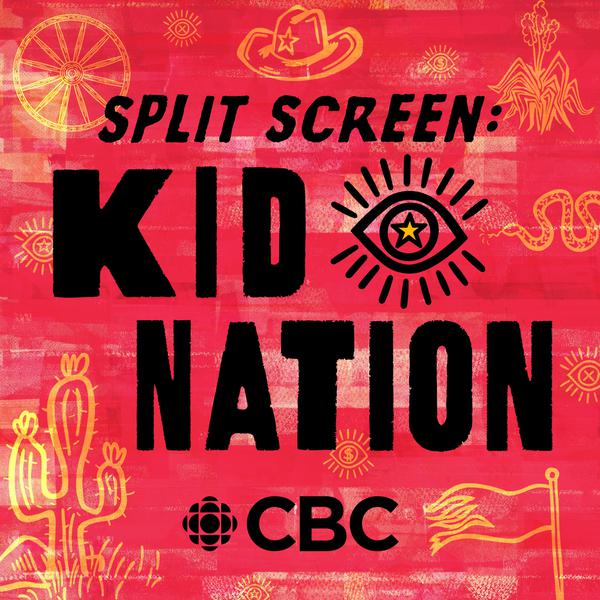
Split Screen: Kid Nation
CBC
<p>The controversial reality TV show known as ‘Kid Nation’, which borrowed its premise from Lord of the Flies, was cancelled shortly after its 2007 debut. Producers took 40 kids into a makeshift desert town to fend for themselves and create their own society. Was the series an opportunity to discover what kids are capable of? Or simply a ploy for ratings?</p><p><br></p><p>With access to former ‘Kid Nation’ contestants, their families, and the show’s creators, culture journalist Josh Gwynn uncovers how this cult TV show became a lightning rod for an ongoing debate about the ethics of reality TV.</p><p><br></p><p>Welcome to Split Screen, an examination of the utterly captivating, sometimes unsettling world of entertainment and pop culture. From reality TV gone awry, to the cult of celebrity, each season of Split Screen takes listeners on an evocative journey inside the world of showbiz. Ex-contestants, producers, and cultural critics uncover complicated truths behind TV’s carefully curated facades, and question what our entertainment reveals about us. Split Screen: sometimes reality is twisted. </p>
- 38 minutes 36 secondsSplit Screen Introduces: Deepfake Porn Empire
Deepfake porn is a billion-click industry built on stolen faces, while the people making it hide theirs behind screens. Hosted by journalist Sam Cole, Understood: Deepfake Porn Empire traces the decades-long rise of synthetic porn, the targets who are fighting back, and the global investigation that led to its Canadian kingpin.
Understood takes you deep inside the seismic shifts reshaping our world right now. From online porn and crypto chaos to the rise of tech oligarchs, deepfake AI, and the broken promises of the internet — we explore the stories that define our digital age with hosts and characters embedded in the heart of the action.
More episodes of Deepfake Porn Empire are available wherever you get your podcasts, and here: https://link.mgln.ai/DPExSS
24 February 2026, 3:10 pm - 29 minutes 52 secondsEpisode 6: In Reality
’I Wanna Marry Harry’ makes its prime time debut. Things do not go as planned. Scott begins to question what we really mean when we call something “reality” TV?
15 December 2025, 8:11 am - 25 minutes 56 secondsEpisode 5: Not So Happily Ever After
As filming wraps, the girls fly back home, and the producers have a surprise waiting for them when they land. As surprises go, this isn’t exactly a great one.
8 December 2025, 8:11 am - 29 minutes 3 secondsEpisode 4: Princess Material
Who is Matt Hicks? A questionable Prince Harry lookalike… but also the man who might be able to tell us what was really going on behind-the-scenes. All we need to do now is find him.
1 December 2025, 8:11 am - 26 minutes 40 secondsEpisode 3: The Believers
Film crews, cults and coercion. A handy guide on how to get people to believe what you want them to.
24 November 2025, 8:11 am - 28 minutes 34 secondsEpisode 2: Fever Dream
Just whose idea was this anyway? And how did they intend to pull off such an absurd stunt? Scott needs answers. And he knows just who he needs to speak to. Danny Fenton — the creator of ‘I Wanna Marry Harry’.
18 November 2025, 9:40 am - 30 minutes 12 secondsEpisode 1: The Fairytale
Kimberly and Meghan audition for a secret new reality dating show. Producers won’t tell them anything about where they’ll be going, what they’ll be doing, or who they’ll be dating. What could possibly go wrong?
10 November 2025, 8:11 am - 1 minute 15 secondsIntroducing: Split Screen: Bachelor of Buckingham Palace
This is the inside story of "I Wanna Marry Harry", one of the world’s most bizarre and ballsy reality dating shows. Coming soon, wherever you get your podcasts on Nov. 10.
7 November 2025, 5:10 am - 33 minutes 4 secondsWho Replaced Avril Lavigne? Episode 6: My Happy Ending
Joanne is back Canada… she has something she really needs to tell Avril. After months of digging – Joanne has finally tracked down the source of this rumour.
SO Avril DEFINITELY didn’t get replaced. That just wasn’t true. Which is great… but it does beg the question, who WAS Melissa?
Who Replaced Avril Lavigne? Joanne McNally Investigates is a 6-part series produced by What’s The Story Sounds – for BBC Sounds and CBC.
Split Screen: Who Replaced Avril Lavigne? is a 6-part series produced by What’s The Story Sounds – for BBC Sounds and CBC.
10 March 2025, 7:11 am - 32 minutes 8 secondsWho Replaced Avril Lavigne? Episode 5: Wish You Were Here
Joanne was beginning to come to terms with the fact that this might all be nonsense. She turns her sights on who started this conspiracy. Where did it come from?
Joanne speaks to experts in online rumour spreading. She hears some extraordinary stories about how lies have gotten completely out of hand and become widely believed (to devastating effect.) Perhaps whoever started this had no idea it would go viral. We really should think more carefully about what we write on the internet…
Split Screen: Who Replaced Avril Lavigne? is a 6-part series produced by What’s The Story Sounds – for BBC Sounds and CBC.
3 March 2025, 8:11 am - 34 minutes 53 secondsWho Replaced Avril Lavigne? Episode 4: Don’t Tell Me
Joanne and her producer Sophie set up a war room with all of the evidence about Avril being replaced layed out. Her clothing, height, make up, song lyrics, voice.. it’s all there – being held up to the light. Joanne lines up some experts to prove once and for all if the Avril story is true.
Split Screen: Who Replaced Avril Lavigne? is a 6-part series produced by What’s The Story Sounds – for BBC Sounds and CBC.
24 February 2025, 8:11 am - More Episodes? Get the App